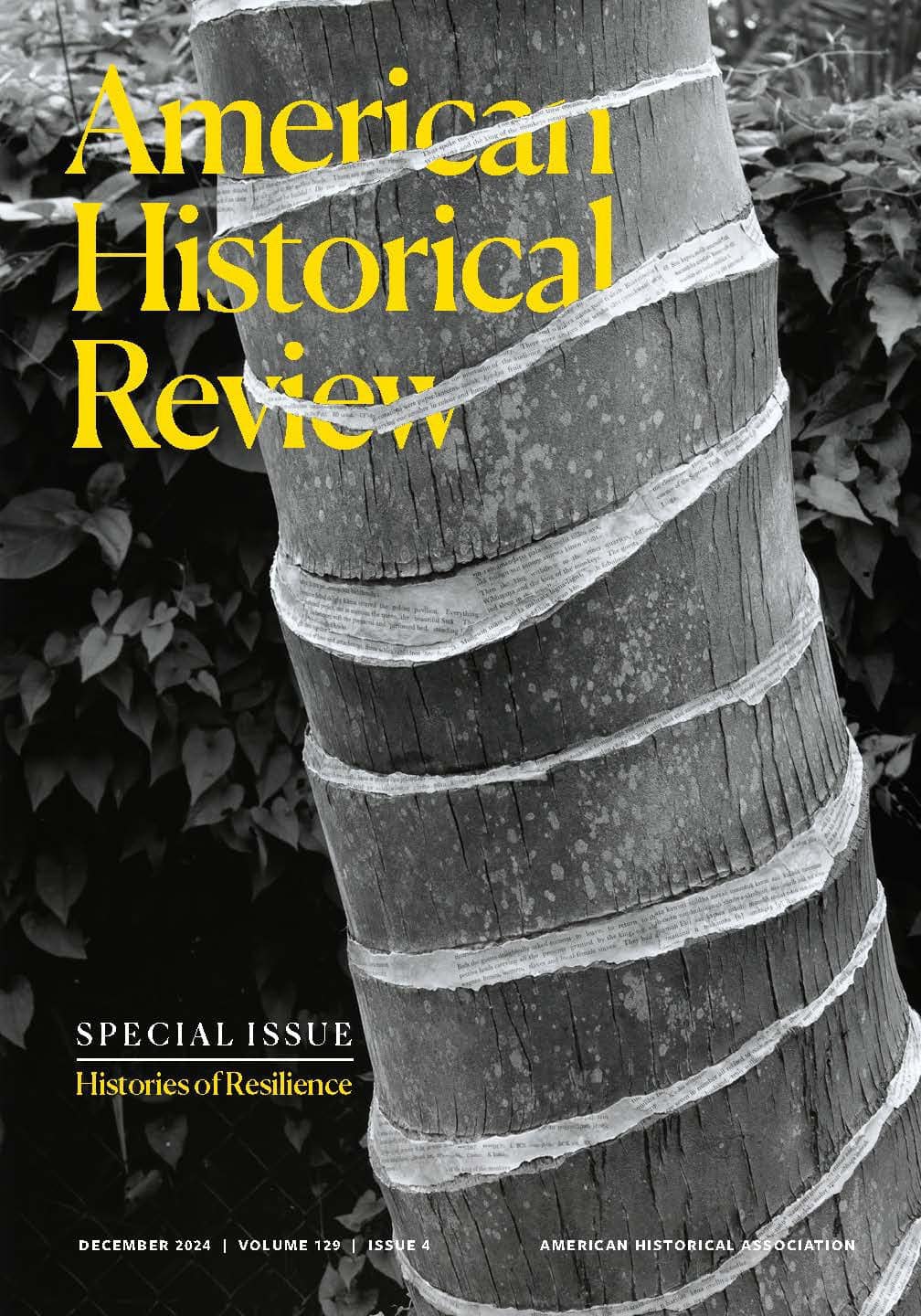.jpg) The AHA is pleased to announce the winners of the 2003 competition for the Gutenberg-e Prizes. The annual competition, aimed at encouraging the electronic publication of the best history dissertations, is run in collaboration with Columbia University Press and with the support of a generous grant from the Andrew W. Mellon Foundation. The 2003 competition (for dissertations in the fields of women’s history and history of gender) attracted 44 entries, the largest number since the competition was launched in 1999. The number and quality of entries prompted the judging committee to recommend the award of nine prizes in this round. Each prize consists of a $20,000 fellowship to be used by the author for converting the dissertation into an electronic monograph to be published by Columbia University Press.
The AHA is pleased to announce the winners of the 2003 competition for the Gutenberg-e Prizes. The annual competition, aimed at encouraging the electronic publication of the best history dissertations, is run in collaboration with Columbia University Press and with the support of a generous grant from the Andrew W. Mellon Foundation. The 2003 competition (for dissertations in the fields of women’s history and history of gender) attracted 44 entries, the largest number since the competition was launched in 1999. The number and quality of entries prompted the judging committee to recommend the award of nine prizes in this round. Each prize consists of a $20,000 fellowship to be used by the author for converting the dissertation into an electronic monograph to be published by Columbia University Press.
The nine winners are (with, in order, names, institutional affiliations, dissertation titles, university where the degree was awarded and year, and brief descriptions of the prizewinning works supplemented by extracts from the judging committee’s comments):
Joshua Greenberg (Univ. of Miami) for “Advocating ‘The Man’: Masculinity, Organized Labor and the Market Revolution in New York, 1800–1840” (American Univ., 2003). This study is “a thorough, and imaginative exploration” that examines the relationship between masculinity and the young labor movement in the Jacksonian era. While examining diverse sources, such as plays, debates about birth control, and comic valentines, Greenberg argues that “domestic issues and concerns guided workplace and political reactions to the new industrial economy.”
Timothy Hodgdon (Duke Univ.) for “Manhood in the Age of Aquarius: Masculinity in Two Countercultural Communities, 1965–83”(Arizona State Univ., 2002). a study “full of rich interpretation,” explores the diverse forms of masculinity found in countercultural radicalism. Hodgdon argues that conceptions of masculinity developed along two main lines: anarchism and mysticism. These are explored by examining the communities of the Diggers of San Francisco and The Farm in Tennessee.
Daniella J. Kostroun (Stone Hill Coll.) for “Undermining Obedience in Absolutist France: The Case of the Port Royal Nuns, 1609–1709” (Duke Univ., 2000). In this “gripping story, well written,” Kostroun answers the question why, in 1709, Louis XIV had two hundred soldiers destroy a convent that was home to only 22 elderly nuns. While answering that question, Kostroun examines how women became the “vanguard of the Jansenist resistance to Louis XIV.”
Erika Lauren Lindgren (Wabash Coll.) for “Environment and Spirituality of German Dominican Women, 1230–1370” (Univ. of Iowa, 2001). Lindgren compares “Sister-Books,” the literature written in the female Dominican monasteries, with the material culture of the women’s surroundings. She examines the ways in which spirituality becomes culturally constructed and the roles of physicality in religious behavior. She develops a “holistic view of the intersection between materiality and spirituality in female monasteries.”
Jeri L. McIntosh (independent scholar) for “Sovereign Princesses: Mary and Elizabeth Tudor as Heads of Princely Households and the Accomplishment of the Female Succession, 1516–1553” (Johns Hopkins Univ., 2003). In this “very impressive” dissertation, McIntosh argues that Mary and Elizabeth did not succeed to the English throne simply because there were no male heirs. McIntosh assesses budgetary accounts, records of entertainment, numbers of important visitors, and political use of staff and retainers to show how Mary and Elizabeth established themselves as credible authority figures before their accessions.
Ann Elizabeth Pfau (Kean Univ.) for “Miss Yourlovin: Women in the Culture of American World War II Soldiers” (Rutgers Univ., 2001). Pfau “extracted extraordinary materials from the World War II files in the National Archives,” for case studies that examine the women in the shared culture of World War II servicemen, including the idealized wife, the promiscuous WAC, the seductive fraulein, the maternal bomber plane and the treacherous Tokyo Rose. Through these she examines the sources and consequences of an “ambivalent cult of American womanhood.”
Margaret Poulos (independent scholar) for “Arms and the Woman: Just Warriors and Greek Feminist Identity” (Univ. of Sydney, 2003). In this study, Poulos explores the intersections of militarism, nationalism, and feminism, during the 19th and 20th centuries. She argues that the essentially ambiguous nationalist imagery of a woman warrior has not been entirely efficient in the women’s emancipation agenda. The result is “an ambitious, interesting, and successful dissertation.”
Kirsten S. Rambo (Emory Univ.) for “’Trivial Complaints’: The Role of Privacy in Domestic Violence Law and Activism in the U.S.” (Emory Univ., 2003). Rambo traces the strategies of the battered-women’s movement in her “analytically astute and well-argued piece of legal history.” She focuses on the role of cultural and legal notions of privacy in litigation and activism in the late 19th and 20th centuries.
Maria Rentetzi (Polytechnic of Athens in Greece) for “Gender, Politics, and Radioactivity Research in Vienna, 1910–1938” (Virginia Polytechnic Institute and State University, 2003). This is “a complex, creative, and fascinating study” of women in Vienna working as independent researchers. She includes documentary research, material culture and built environment analysis, and oral histories to examine the culture of women in the unique positions of radioactivity researchers during the early 20th century.



